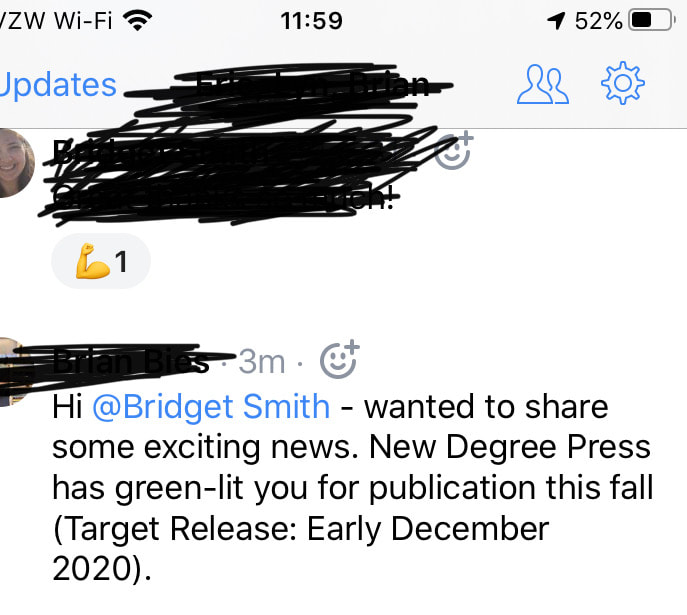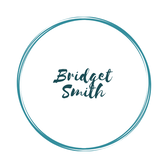All of this begs an important question, and one I am still wrapping my brain around: how exactly does one go about publishing a book? Writing a book is hard enough, but I know many authors who get discouraged from even finishing their book because the publishing industry is so hard to enter. Traditional publishing houses are typically very picky with what manuscripts they fund, so it's very possible to go through all the effort of writing a book, only to be turned down at the last minute. There are basically three types of publishing: traditional, self, and hybrid. In this blog post, I'll take you through each type to help you learn more about the publishing industry. No author should be stopped from sharing their book with the world just because a publisher isn't willing to take a chance on them. Traditional PublishingTraditional publishing is what people usually think of when they hear the term "publishing". These are big publishing houses, like Random House, Harper Collins, and Macmillan. Their entire business is buying, marketing, and selling books. In a traditional publishing environment, an author will get a literary agent who will send their manuscript to a bunch of different publishers to see who is interested. If someone is interested, they'll offer a publishing contract: payment for your manuscript, including the intellectual property rights, and a percentage of any royalties from the books which are sold. In return, the publisher helps the author revise the manuscript, design cover art and the book layout, and market the book. When the book is sold, the publisher keeps a percentage, and the author gets the pre-determined percentage of royalties. In this setting, the publisher works with the author to determine what formats the book should be released in (paperback, hardcover, audiobook, and so forth - but because the publisher owns the intellectual property rights associated with the book, they get to make any final decisions. This includes how many countries the book is published in, what languages it is translated to, and what happens if anyone is interested in making additional media (movies, video games, and so forth) based on the author's work. Usually, publishing houses think very carefully about who they decide to invest in. It's a high up-front cost to publish professionally, and publishing houses cover that costs. To make sure they can turn a profit, publishing houses will usually only purchase manuscripts they believe can sell more than 10,000 copies in their first year. That makes it much harder for unknown authors to get a book deal - since you're less well known, it'll be harder for you to sell copies, so the publisher has to spend more money on marketing. If you're already established and have a fan base, it can be easier to sell your manuscript, since it's more likely people will buy it. Self-PublishingSelf-publishing is the polar opposite of working with a traditional publishing house. Before the internet, it was really hard to publish a book without the help of an established company - costs are high, and there wasn't a good way to advertise without spending crazy amounts of money. With the advent of the internet - and, in particular, Amazon - self-publishing became an attainable goal for many authors. To self-publish, an author writes their book, and does any revisions they feel are necessary. This can include hiring an editor, or working with alpha and beta readers - but doesn't have to. Because there is no "quality minimum" required in self-publishing, it can get a bad rep. Some people have a tendency to look down (incorrectly, in my opinion) on authors who choose to self-publish their work, because it's viewed as something "anyone can do". In my opinion, if you can write a book, you deserve to have your words put out there. Do books get better from editing? Absolutely. Can anyone benefit from professional layout support, cover art, and marketing? For sure. But, all of that is expensive and self-funding to that extent isn't realistic for people. Self-publishing allows you to get your name out there - and gives you the satisfaction of getting to see your book in print. In addition, in self-publishing, you get to keep 100% of the royalties from your book: it's still yours. Because you own the book and the intellectual property, it gives you a lot more control over your book's future. You can choose what format it is printed in, and when it prints; if anyone does an audiobook, and if it's carried in foreign languages. The downside is that's a lot of work. There's a reason traditional publishing houses have entire teams of people dedicated to making a book a success. Self-publishing allows you to get your book and name out there, but you have to put in the legwork to build an audience, make connections, and sell copies of your book. Hybrid PublishingHybrid publishing is, as you might expect, somewhere between these two models. In hybrid publishing, you work with a publishing house, but their role is a little different. The author doesn't sell their book to the publisher; instead, they pay the publisher to help do professional editing, cover art, marketing, and outreach. If you're self-publishing, there's nothing to stop you from doing this, too. You can go and find freelance editors and marketers, and pay them out of pocket. The difference is if you work with a hybrid publishing house, the publisher takes care of that work for you. They already have editors they retain, cover artists they've screened and worked with, and marketers who are experienced in selling books. They also likely have relationships with booksellers which can help get your book into actual stores, not just online. Those of you who are reading closely might point out the same challenge here as with self-publishing: not everyone has the funds to be able to pay for professional services. Typically, with hybrid publishing, that's only one option. Another option is to do crowdsource funding, by pre-selling copies of your upcoming book, and using the proceeds of those pre-sales to pay the hybrid publisher. In return for taking part in the pre-sale, the author can also offer their readers lots of exclusives, like previews of new chapters, secrets about your story, or even the chance to have a character named after them. In addition, just like in self-publishing, the author maintains complete ownership of the book and the intellectual property associated with. Also, because the hybrid publishing house is basically being retained to get the story from manuscript to physical book, and nothing more, they don't get a percentage of any royalties - those belong to the author. What's Right for You?The best choice for me was hybrid publishing. I'm an unknown author, and there's no good reason other than the quality of my writing for a publisher to take a chance that I could sell books. I believe I can, and I believe my character's stories deserve to be told, but I also want to have control over how they're told. For me, maintaining ownership of my book gives me the most options for the future.
If I publish, and sell a decent number of books, then decide to go the traditional publishing route, I can now prove to publishers that I can sell books and that I have a fan base, which means I'm less of a risk. In addition, because I own the intellectual property of my book, I can choose if I want to sell it to the publisher or just keep doing what I'm doing. For you, the answer will vary. All three options have pros and cons, challenges and benefits, and carry their own risks and rewards. The most important thing is that you know your story deserves to be heard - and there are lots of ways to make that happen. Comments are closed.
|
AuthorBridget is the author of Summer Twilight, available for purchase now! Categories
All
Archives
March 2021
|

